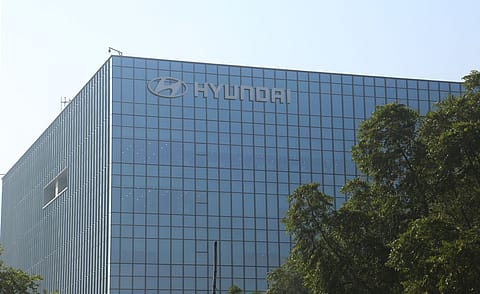Hyundai to invest $85.41 bn on EV push; to roll out 2 mn units by 2030
Hyundai currently holds 8% market share in the electric vehicle segment globally. Through this strategy, the company plans to four-fold its EV market share to 34% by 2030.

South Korean automobile major Hyundai Motor is planning to roll out as many as 2 million units of electric vehicles globally by 2030 as part of the company’s 'Hyundai Motor Way' strategy. The company had earlier set the target to roll out 1.87 million EV units by 2030. In order to accelerate its transition toward becoming a smart mobility solution provider, Hyundai will invest $85.41 billion (KRW (Korean Won) 109.4 trillion) in the next 10 years by 2032, with a special focus on the company’s electric vehicle segment.
During the '2023 CEO Investor Day,' on June 20, the Korean automobile giant laid out its roadmap for transitioning its internal combustion engine (ICE) vehicles to a market leader in the electric vehicle segment globally. Hyundai currently holds 8% market share in the electric vehicle segment globally. Through this strategy, the company plans to four-fold its EV market share to 34% by 2030. The company plans to expand production by region through a two-track approach of line conversion in ICE factories and a new dedicated EV plant establishment.
Hyundai's next-generation dedicated EV platform
According to Hyundai, the key parts of the strategy include introducing a next-generation modular architecture for EVs, strengthening EV production capacity, battery development capabilities and future businesses.
The company said that the next-generation dedicated EV platform, under the new Integrated Modular Architecture (IMA), will replace its Electric-Global Modular Platform (E-GMP) going forward. The existing E-GMP mainly targets the company’s SUV (sports utility vehicle) segment. However, the next-generation EV platform would target Hyundai’s entire product range, ranging from small and large SUVs to pickup trucks, along with the flagship models of the Genesis brand. The company plans to achieve more than 10% profitability in EV business by 2030 through this new platform.
The next-generation platform will be used on 13 new dedicated EV models from Hyundai Motor Group’s automotive brands Hyundai, Kia and Genesis through 2030. With IMA, the company expects to standardize modules and parts between the models to further expand economies of scale and significantly reduce EV development complexity and costs.
"With the IMA development system, over 80 common modules can be utilized across different segments, irrespective of vehicle type, allowing for versatile combinations. This breakthrough allows for greater flexibility and efficiency in the development process, paving the way for significant cost savings," the company said.
Recommended Stories
Battery Solutions
For the next-generation platform, Hyundai plans to apply a range of battery solutions including lithium-ion NCM batteries and LFP (lithium ferro phosphate) batteries. The company is also exploring different form factors of batteries to enhance versatility.
"To further extend the driving range, Hyundai Motor intends to implement cutting-edge technology that enables battery charging and discharging while driving, utilizing an independent power bank. In addition, the integration of an AI-based battery management system will ensure real-time monitoring and diagnosis of battery conditions, ensuring enhanced safety by preventing thermal runaway," the company said.
EV Manufacturing plant
(INR CR)
Hyundai’s first dedicated EV factory, the Hyundai Motor Group Metaplant America (HMGMA) in Georgia, U.S., is under construction with a targeted start-up date in the second half of 2024, with an annual production capacity of 300,000 vehicles to meet the demand for EVs in North America. Another EV-dedicated factory aims to start production in 2025. Moreover, the company’s 'Hyundai Motor Group Innovation Center in Singapore (HMGICS)' is scheduled to be operational this year.
At present, the company is producing EVs on mixed production lines across the US, South Korea, the Czech Republic, and India.
In Q1 of 2023, the company achieved an operating margin of 9.5%. The company’s revenue from operations surged 24.7 year-on-year (YoY). The company’s sales surged by 13.2% YoY to 1,021,712 units around the globe in the January–March period.
In the next few quarters, the company plans to expand its EV portfolio by launching Hyundai Kona EV, Genesis’ GV60, Electrified G80, and Electrified GV70 globally.
In FY24, the company will be launching EV model of IONIQ 5. "As it originated from Pony, the IONIQ 5 N—a high-performance EV scheduled for unveiling in July—will embrace and carry forward the enduring heritage of Hyundai Motor Company," said Jaehoon Chang, President and CEO, Hyundai Motor.